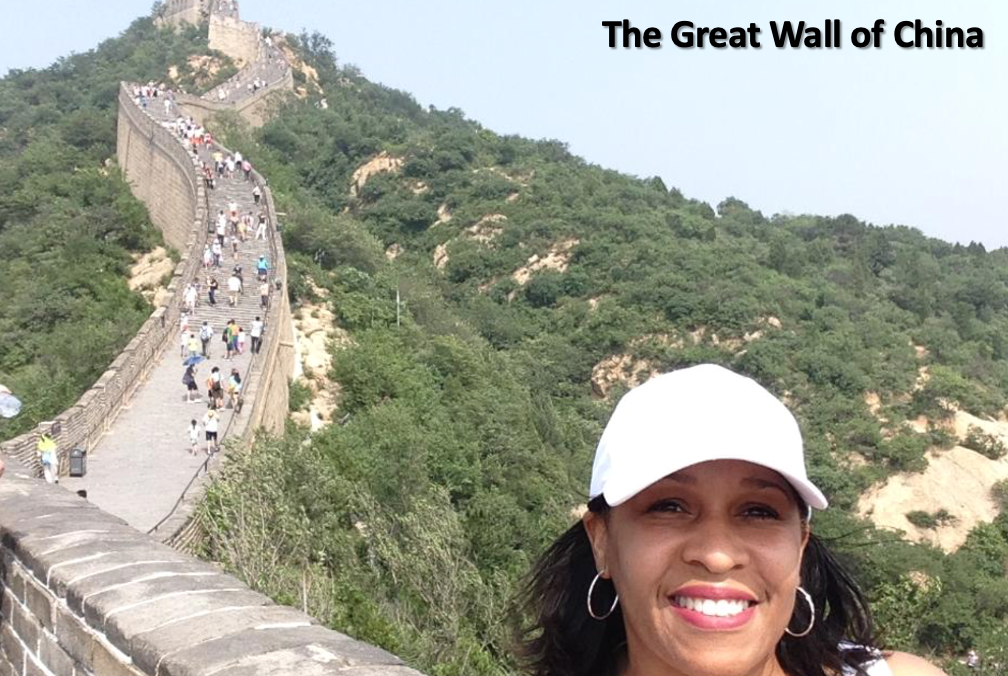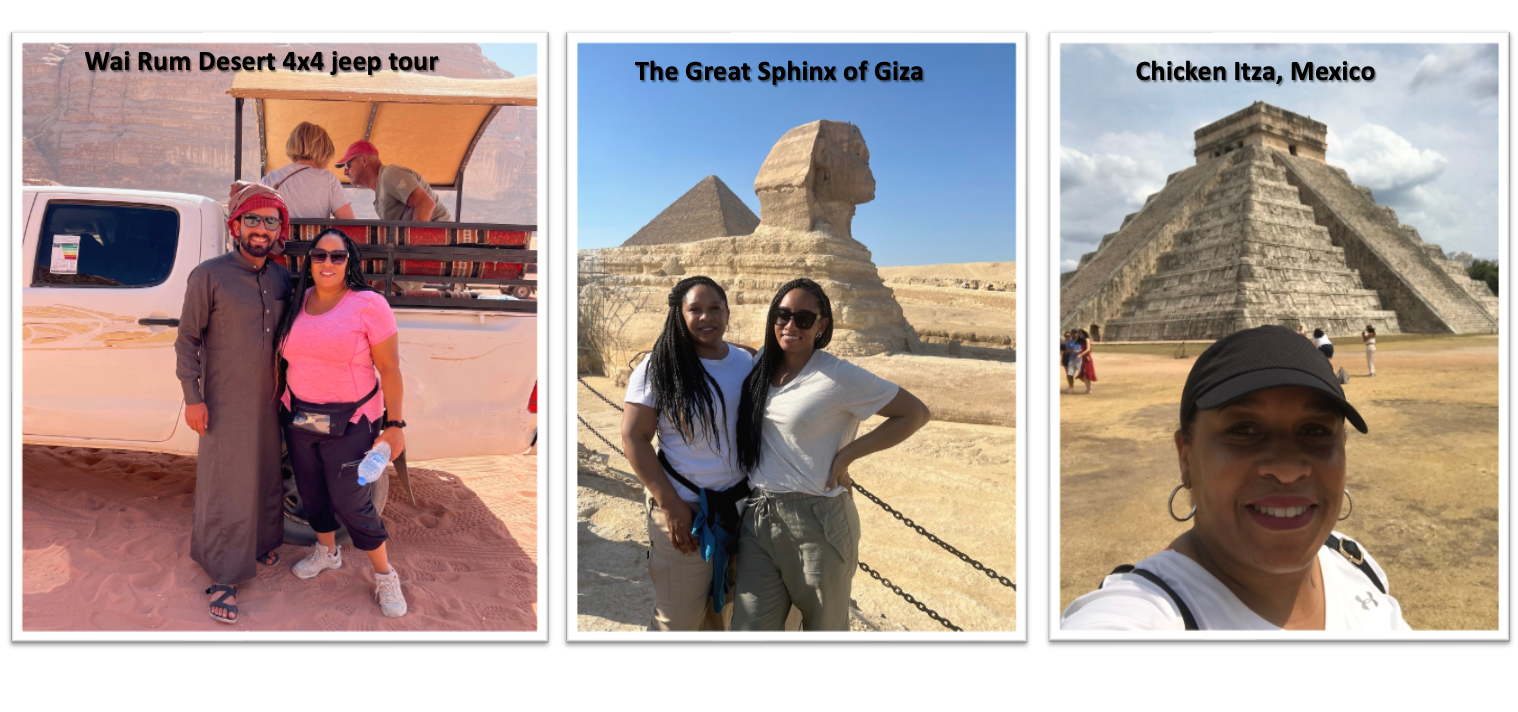Written by De’Vonna Dorton, Ecosystem Project Manager, Business Line Secure Connected Edge Ecosystem Team at NXP Semiconductors

As the United States kicks off another year of Black History Month (also known as African-American History Month) celebrations, I am reminded of its significance and importance in the lives of all Americans regardless of race, ethnicity, gender, religion, etc. Recognition and awareness have grown far beyond family gatherings around the dinner table, the youth reciting moving speeches in small auditoriums throughout communities, television networks watering down the great speeches of Dr. Martin Luther King, Jr. to prove their “wokeness” or corporations hanging up a few poignant posters on diversity, inclusion, and equality. Today we actually see the manifestation of the hard work and determination of those who came before us to push for a more just and heterogeneous society. Companies, governments, associations, and organizations of all sizes are making strides and exhibiting real commitment to building a more diverse and inclusive culture and a deep appreciation for the diversity of thought.
To quote the illustrious, poet and civil rights activist, Maya Angelou, “It is time for parents to teach young people early on that in diversity there is beauty and there is strength.” I could not agree more. Expounding on this thought, there is also a strong sense of valor and benevolence in considering others who look different, think differently and have unfamiliar belief systems. Back in the 90s, diversity was not the first thought that came to mind when I entered the workforce. Most companies that I engaged with did not consider diversity as a key factor to attract talent. Fast forward 30 years, and we see that the pendulum has shifted in the right direction. Many job seekers, like my daughters for example, rank diversity up next to salary when determining where to spend their time and talent. Research has shown that 67% of job seekers consider workplace diversity an important factor when considering employment opportunities, and more than 50% of current employees want their workplace to do more to increase diversity (Glassdoor). Not surprisingly, companies in the top quartile for being ethnically and culturally diverse are 36% more profitable than those in the bottom quartile according to a study by McKinsey& Company in May 2020. Many companies are waking up to this and putting real action behind diversity goals and making mission statements a reality.
Now that we are observing remarkable feats on the diversity front, society must shift its collective attention to the notions of inclusion and equality. The organization, Built In, an online community for National startups and tech companies, describes inclusion as the practice or policy of providing equal access to opportunities and resources for people who might otherwise be excluded or marginalized. Google describes equality as fairness, and ensuring that individuals, or groups of individuals, are not treated less favorably because of their protected characteristics. In my opinion, inclusion and equality require as much as or perhaps even more intentionality than diversity. In essence, the work is not done just because there is a melding of different people in the room. The benefits occur when we really start to engage and recognize contribution from others. In other words, diversity brings individuals to the room and inclusion & equality provide a seat at the table and a voice in decision making.
Applying diversity, inclusion, and equality practices come in many forms. What works for one company or community might miss the mark at another. NXP Semiconductors, where I have been employed for 26 years, has proactively introduced programs over the years aimed at shaping an environment where everyone feels heard and valued. For instance, the company encourages and promotes employee resource groups (ERGs), which are safe spaces for individuals to gather and discuss common interests. I am a member of the ERG, BALT (Black Achievement Leadership Team) which also uses its platform to raise awareness on topics impacting the Black Community and on little known events and contributions across the African diaspora in American history. The ERGs are as diverse as the company’s work environment itself and have proven to be wins for both management and employees alike. Through these groups, employees are uniquely situated next to senior leaders who provide a listening ear and can directly influence company policy and culture. At the same time, management through their participation is able to keep their finger on the pulse of the organization allowing them to quickly react before issues become grievances.
There’s also the example of NXP’s commitment to diversity in technology substantiated by its contribution to the Zephyr Project. Zephyr uses a collaborative environment to deliver an RTOS that’s open source, applicable in a wide diversity of use cases, and currently supports more than 170 hardware devices. The Zephyr Project with support from more than a dozen organizations, brings together a diverse group of people from multiple organizations working collaboratively to drive down costs and accelerate time to market for connected embedded devices. NXP aligning itself to a project which embodies diversity in structure, inclusivity of all contributors, and governing with fairness, comes as no surprise to me.
Finally, here’s a powerful example of individuals wittingly or unwittingly demonstrating inclusion that comes from my manager who leads a global team made up of individuals working from cities across Czech Republic to major metropolitan cities throughout the USA. The team’s diverse composition introduces vast differences geologically, geopolitically, socioeconomically, culturally, among other areas. My manager approached this conundrum head-on with a relationship-building opportunity by inviting everyone on the team to give a 15 minute presentation about themselves (who they are, where they come from, what gives them joy, etc.). The point wasn’t to create elaborate slides with flashing lights and colorful animation but it was to really give a glimpse into our humanity, customs, and personal values so that everyone feels validated, appreciated, and respected as valuable contributors.
In conclusion, we individually and collectively have a part to play when it comes to exercising diversity and inclusion in our daily lives. It is no longer socially acceptable to only surround ourselves with individuals who look like us, think like us, and behave like us. Growth occurs when we open our hearts and minds to the thoughts, ideals, and journeys of others. It is then that we will experience true connections and equality. As a society, we haven’t reached our final destination but we are at least heading in the right direction.
About De’Vonna Dorton:
In the semiconductor industry for more than 26 years, De’Vonna has held many roles involving project management, metrics reporting, quality and compliance auditing, process and improvement analysis, and change agent. Currently, as an integral member of the Ecosystem & Tools team, her primary responsibilities include the outbound marketing & support for the MCUXpresso SW & Tools suite, MCU partner program relationship management, providing data analytics to drive strategy and improve the user’s experience around NXP products and services, and providing enterprise tool support. De’Vonna holds a BS degree in Business Management- Marketing.
De’Vonna’s passions include family, relationships, and travel. She is well on her journey of visiting some of the world’s best known travel destinations.
